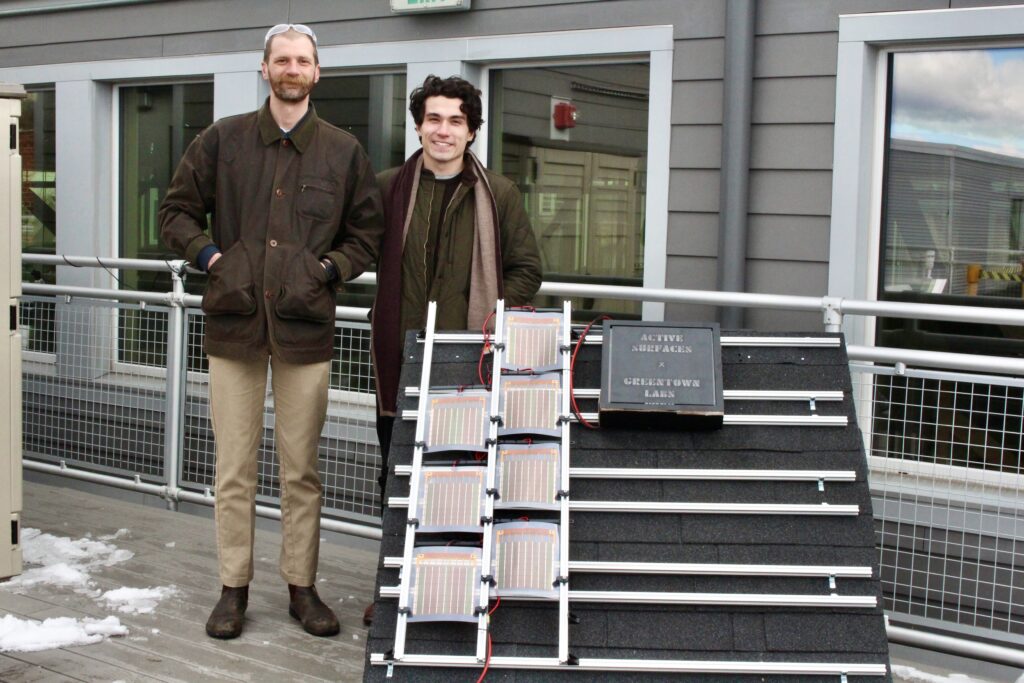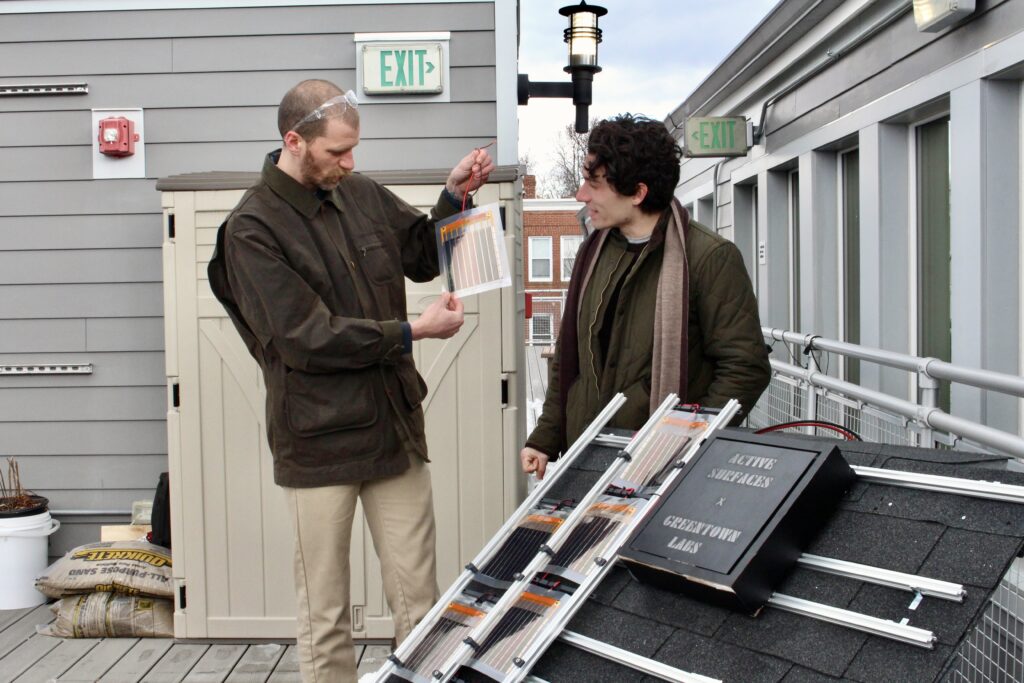Imagine putting solar panels on top of an EVs to extend range, rolling out modules to power communities after hurricanes, or integrating solar into aerospace and transportation infrastructure. Now picture every warehouse and distribution center in the United States covered in solar, generating enough energy to power the largest city in each state. The opportunities for solar integration are vast, but many remain unrealized due to limitations in traditional solar panel technology.
The built environment presents one of the largest untapped opportunities for solar adoption. Most commercial and industrial rooftops were not designed for solar and are prohibitively expensive due to weight constraints, high soft costs, and installation barriers. These barriers have left millions of square feet of prime solar real estate unused.
Greentown member Active Surfaces is solving this challenge with an ultra-lightweight, flexible solar module that is more than 10x lighter than traditional panels. Unlike traditional systems, these modules can be installed rapidly without major structural upgrades, cutting installation costs and time while maintaining competitive performance.
Advancing Solar Deployment Through Real-world Testing
Active Surfaces’s journey to commercialization saw a major milestone this winter, when it demonstrated its fully functional solar module in Greentown’s rooftop lab—developed quickly after opening its manufacturing research facility in Woburn, MA in late 2024. This successful, inaugural outdoor field test will allow the startup to continue fine-tuning its technology in advance of pilot projects with commercial and industrial partners later this year.
“Seeing our solar modules deployed in real-world conditions—not just in a lab—helps customers grasp the tangible benefits,” says Dusty Stahl, Active Surfaces’s director of business development. “This hands-on validation is how we de-risk new technology and accelerate adoption.”
Greentown Boston’s rooftop lab enables members to pilot and prototype in true-to-environment conditions in tandem with other tools and equipment. Active Surfaces initially joined Greentown as part of the inaugural cohort of ACCEL—an accelerator from Greentown and Browning the Green Space designed to support BIPOC-led startups—and remained a Greentown member after the program concluded.
Active Surfaces also participated in Greentown Go Build 2023 with Saint-Gobain, a startup-corporate partnerships accelerator. Through the program, Active Surfaces ran integration tests at Saint-Gobain’s North American R&D headquarters in Northborough, MA that focused on adhesion methods and materials for attaching Active Surfaces’s ultra-lightweight solar modules to Saint-Gobain roofing products.
“Active Surfaces has demonstrated remarkable progress in developing their technology from joining the ACCEL cohort in early 2023 to taking this critical step with their first outdoor field test in 2024,” says Greentown’s COO Joubin Hatamzadeh. “At Greentown, we take pride in supporting startups like Active Surfaces that are pushing the boundaries of climate innovation and doing so with a relentless focus on solving real problems, validating technology and manufacturing quickly, and creating global impact.”
“We support Greentown Labs because it enables companies like Active Surfaces to quickly test, validate, and pilot real-world applications,” says Pengxin Dong, investment manager at Sabanci Climate Ventures, which is both a Greentown Terawatt Partner and an investor in Active Surfaces. “Bridging the lab-to-market gap is critical, and Greentown plays an essential role in that process.”


No Roof Left Behind: Unlocking New Solar Markets
Traditional solar modules are often too heavy for low load-bearing warehouse roofs, limiting deployment opportunities. Active Surfaces’s ultra-lightweight, flexible modules enable installations where conventional solar is not an option.
Moreover, soft costs—including labor and structural supports—are a significantly larger cost driver relative to the panels themselves. By simplifying installation and reducing structural requirements, Active Surfaces says it’s positioned to deliver the lowest system-level cost of any solar technology.

Scaling U.S.-based Solar Manufacturing
Active Surfaces has achieved several key milestones in rapid succession to enable this field demonstration, including onboarding an industrially relevant roll-to-roll (R2R) line and achieving full vertical integration—turning raw materials into finished solar modules. These achievements make Active Surfaces one of the few U.S.-based startups capable of cost-effective, full-scale, domestic solar manufacturing—particularly relevant given the currently shifting trade policies, supply-chain concerns, and energy-security priorities.
Beyond Greentown, Active Surfaces has partnered with Boston Solar to trial its prototype modules at the company’s Woburn warehouse, gaining real-world installation insights from seasoned solar professionals.
The team behind Active Surfaces is composed of seasoned deep-tech operators, including experts in manufacturing, solar technology, and advanced electronics. The company’s advisors include Vladimir Bulovic, director of MIT.nano, and Moungi Bawendi, an MIT professor and nobel laureate.


